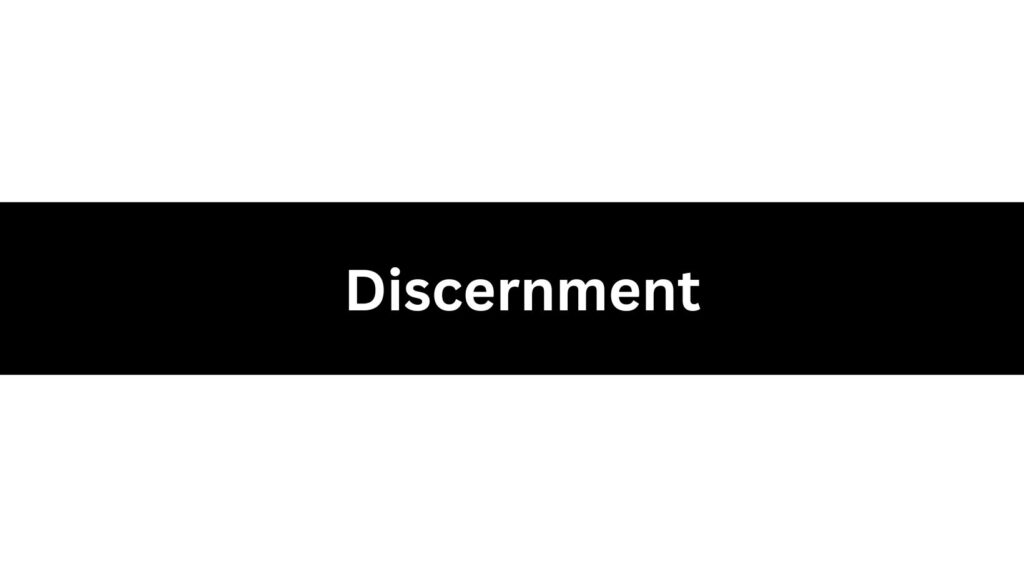Discernment is one of the most valuable skills we can cultivate in life. It is the ability to see beyond the surface, to distinguish between truth and deception, and to make choices that align with wisdom, integrity, and purpose. Whether in relationships, career decisions, or spiritual matters, discernment helps us navigate life with clarity and confidence.

What Is Discernment?
At its core, discernment is the ability to judge well. It is not just about making decisions but making the right ones. Discernment involves deep thinking, seeking wisdom, and tuning into both intuition and logic. It is about looking beyond appearances and assessing what is truly beneficial versus what simply looks good on the surface.
Some define discernment in spiritual terms, such as understanding God’s will, sensing divine guidance, or distinguishing between good and evil. Others see it as a practical skill, such as learning to read people, situations, and opportunities with clarity. Either way, it is a trait that fosters maturity, self-awareness, and intentional living.
Why Discernment Matters
Without discernment, we can easily fall into poor decision-making. We may trust the wrong people, commit to the wrong opportunities, or be led by fleeting emotions rather than solid wisdom. Discernment helps us:
- Avoid deception: In a world full of misinformation, manipulation, and distractions, discernment allows us to separate truth from lies.
- Make wise decisions: Instead of reacting impulsively, we take time to weigh our options and choose wisely.
- Protect our peace: Not everything is worth our time and energy. Discernment helps us say no to what drains us and yes to what aligns with our values.
- Strengthen our faith: If you are spiritually inclined, discernment helps you stay attuned to divine wisdom rather than being swayed by worldly influences.
How to Cultivate Discernment
Like any skill, discernment can be developed with practice. Here are some ways to strengthen it:
1. Seek Wisdom
Surround yourself with wise mentors, read insightful books, and seek advice from those who have walked the path before you. The more wisdom you expose yourself to, the sharper your discernment becomes.
2. Pause Before Deciding
Rushed decisions often lead to regret. When faced with a choice, take a step back, reflect, and allow time for clarity to emerge.
3. Pay Attention to Red Flags
Whether in people, opportunities, or situations, discernment helps you notice inconsistencies, warning signs, or things that feels off. Trust your gut.
4. Align with Your Core Values
If something contradicts your principles, it is probably not the right choice. Stay anchored in your values when making decisions.
5. Pray or Meditate
If you are spiritual, seeking divine guidance through prayer or meditation can bring clarity and peace in moments of uncertainty.
6. Reflect on Past Mistakes
Think about times when you ignored your intuition and made choices that did not serve you well. What can you learn from them?
7. Develop Emotional Intelligence
Sometimes emotions cloud our judgment. Learning to manage your emotions and recognize biases will help you discern with a clear mind.
Final Thoughts
Discernment is a lifelong journey. The more we practice it, the more we refine our ability to see clearly and choose wisely. In a fast-paced world full of noise, having a discerning heart and mind allows us to walk in wisdom, peace, and purpose.
What areas of your life do you need more discernment in? Take time today to reflect, seek wisdom, and make choices that align with your best self.







